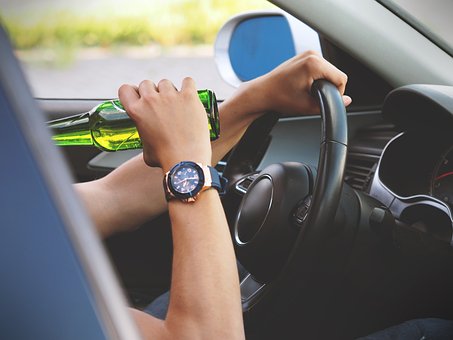
We'll start with the basics of your North Carolina DWI, like how you got one and why. If you are 21 or over and driving with a blood alcohol level of .08 percent or more, you qualify for a DWI charge. Due to safety concerns, the blood alcohol for commercial drivers is .04 percent. When you get pulled, the police officer will require you to submit to field sobriety tests as well as a breathalyzer test. Even if you blow below the .08 percent, your performance on the sobriety tests can be enough to charge you with DWI. If you're under 21? Any alcohol in your blood gets you a DWI.
In North Carolina, you may be convicted of driving while intoxicated if you have drugs or alcohol in your bloodstream. If you drive with any marijuana, for example, you could be charged with DUI. If you are convicted of driving under the influence in North Carolina, the convcition will be on your record for seven years beginning when all fines are paid and other sentencing requirements are completed. Typically, lower-level DWI convictions require community service, drug and alcohol education, and other reparation. Repeat offenders of DWI laws face increasingly stiffer penalties.
DWI offenders convicted within three years of a prior DWI conviction can be fined up to $2,000 and/or jail for up to two years and a four-year license suspension. If you are convicted of a third DUI within 10 years, you will face criminal charges, heavy fines, jail, and the loss of your license for good . Unfortunately, North Carolina doesn't allow expungements of DWI arrests, so even without a conviction, the charges will still be on your record.
Don't Look Back!
Part of North Carolina's complex DWI enforcement laws is a section known as the lookback period. This is where navigating the DWI court process gets tricky. When a judge is determining the sentence for a DWI, the court is allowed to consider prior DWI convictions. DWI convictions outside the driver's home state will also be considered. The basic tenet of North Carolina's DUI lookback policy is that a prior DWI conviction increases the penalties of a current DWI conviction.
The lookback period in North Carolina is seven years for a misdemeanor DWI and 10 years for a felony DWI. A third DWI conviction in North Carolina within 10 years, for example, is sentenced as a felony DWI.If you are convicted of a DWI and caused serious injury or death while driving, it's a felony charge with a minimum of one year in state prison.
A lot happens between the time a driver is arrested for DWI and when the final sentence is handed down. Even a first DWI in North Carolina can be life changing and it's easy to see how a second or third can be devestating. Don't let the vague, sometimes misinterpreted DWI laws make things worse than they have to be.
If you get a DWI in Charlotte or Mecklenburg County, there's a DWI attorney with 25 years of experience a phone call away. Call 704-714-888 or send us a quick message online to partner with one of Charlotte's most highly regarded DWI lawyers.

